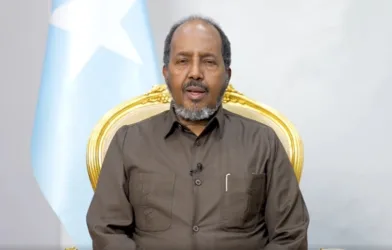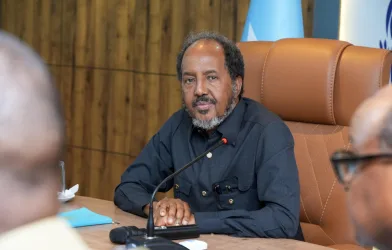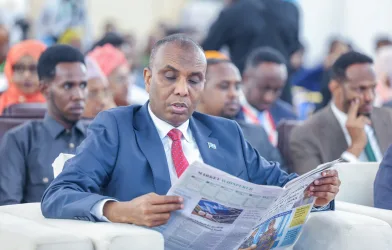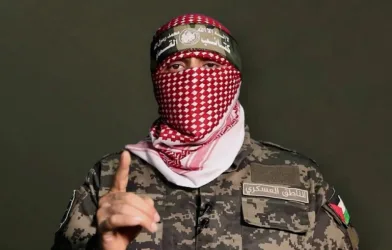
Shabaab, al Qaeda’s branch in Somalia and East Africa, claimed Friday’s suicide assault on the presidential palace in Mogadishu. A nearby hotel was also targeted as part of the strike. At least 40 people were killed in the first terrorist attack of its kind in Mogadishu this year.
The jihadist group quickly claimed credit for the offensives on its Shahada News Agency Telegram channel and its Radio al Andalus website. Its statement claimed that over 80 were killed or wounded, which is close to the actual numbers. Shabaab also said its forces lost five fighters, the two bombers and three gunmen, in the assaults.
The first suicide car bomb occurred near the presidential palace, known as Villa Somalia. After the blast, a subsequent firefight ensued between security guards and Shabaab militants. At least 15 people were killed in the initial blast or firefight, with many more wounded. The second suicide car bomb and subsequent suicide attack, which happened shortly after the first, targeted a popular hotel near the palace.
At least 21 people were killed in that initial assault. While the bombing took place near a hotel, the jihadist group claimed it was targeting Somali intelligence personnel. This type of claim is common for the jihadist group as it attempts to justify its murder of civilians. Over the past two days, many people who were injured during the strikes have succumbed to their wounds, causing the death toll to rise.
Friday’s bombings were the first attacks of its kind to target Mogadishu this year. Last year, there were at least 43 car bombs, both suicide or otherwise, in Mogadishu according to data compiled by FDD’s Long War Journal. The last major suicide offensive occurred in December when a Shabaab fighter, disguised as a police officer, killed at least 18 people at a police academy in Mogadishu.
In late October, 23 people were killed in a coordinated suicide assault on another popular hotel in Mogadishu. That strike came just two weeks after the deadliest suicide car bombing to ever hit Mogadishu. In that attack, more than 500 people were killed after a truck bomb detonated outside a hotel. It is believed that a nearby fuel tanker exploded, adding to the carnage. The targeted hotel also collapsed, which also contributed to the high death toll.
Shabaab has been resurgent in Somalia since losing ground to a combined African Union (AU) and Somali offensive in 2011. The jihadist group has slowly but methodically retaken several towns and villages that it lost in both central and southern Somalia – often after AU or Somali forces withdraw. In addition, it remains a potent threat against both African Union and Somali military bases in central and southern Somalia. The al Qaeda branch also remains a serious danger inside northern Kenya, where it has undertaken several assaults and improvised explosive device attacks and even increasing its operational tempo there last year.
SOMALIA: Shabaab claims deadly assault on presidential palace in Mogadishu
Published: February 26, 2018







